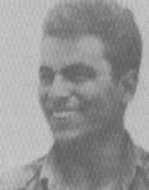Eitan ben Miriam and Michael was born on January 10, 1946. The period – after the end of World War II. The camp in Afula, the temporary camp in Naaman, the pioneering settlement in the eastern outskirts of the Sharon, and the “evacuation” in Hadera, a period of time with his mother, and even without her, surrounded Adoring the dark, muscular, beautiful child in the streets of Hadera. Eitan was his name – strong in his body and independent, but also aggressive and not easy to educate, especially when he had a brother who was sick and took much of his parents’ attention until he died. After that he had a healthy brother whom they loved. Eitan brought Tikva to his parents’ house, an Iraqi girl who was in his class, calm and good-natured, she was to him as a sister. Eitan learned to read and would swallow books: children’s books, popular science books, literature and scientific literature. He had been a Safra man all his life. After reading came the writing. In his youth, at the Maayan educational institution, he began to write and express independent opinions on such topics as anti-Semitism, Soviet Jewry, who is a Jew, the Hashomer Hatzair movement, a trainee, and a guide. When he was in the 11th grade, he edited the youth newspaper and was immersed in a frenzy of writing, volunteering with the kibbutz’s consent to serve in the Nahal Brigade together with his classmates and a group of members of the city movement. Was recruited at the end of November 1964 and assigned to the Nahal Brigade. The period of basic training and rigid frameworks, discipline and mannerisms were difficult for the independent and rebellious youth. He later adapted to the regime and even began to climb the ladder of command. He completed his course in the Infantry Corps course and later completed a course for infantry officers, and as a devoted trainee, he also contributed to the writing and editing of unitary newspapers, and Eitan became an exemplary officer who gained the trust of his apprentices, Manufacturing industries. During the Six-Day War, Eitan commanded his men in battles in Nablus and the Golan Heights, with the utmost concern for their safety and purity of arms. He spoiled his family in many letters throughout the waiting and war period, and in one letter he wrote: “I would rather not fight and I am glad that it is all over, but we had to do our duty well. When I came in, I did not get dirty and behaved like a human being, which the commanders did not like and most of the soldiers too … Of course I’m not sorry and I’m sure they’ll understand. ” Eitan had extended his service in the IDF for a year, he was connected to his parents and to the collective idea, but he did not meet the daily pressure, and he wanted to study without being obligated, neither to the kibbutz nor to the army. In July 1967 Eitan was released from regular service and assigned to a reserve unit. He completed the external matriculation exam while serving in the career army. In the fall of 1969, he began studying mathematics at Tel Aviv University, and theoretical mathematics captured his heart. He was diligent and devoted his day to his studies and quite a bit of the night. Thus he became one of the best students in the faculty, he would bother his teachers with his inquisitive questions, helped his friends to understand a secret and came to the first degree, when his grades were over 90. In the fourth year, he was awarded a study grant and he made it in the Faculty of Applied Mathematics of the Hebrew University of Jerusalem under the direction of Professor Kaniel. Eitan met his girlfriend Mina from Herzliya. During the waiting period and the Six-Day War, their ties deepened and after he left the kibbutz he married her. They settled in Hod Hasharon where their two children, Yifat, who looked like her father and Yehuda, who was his pride, was born three months before the outbreak of the Yom Kippur War. In 1970, Eitan took a course in combat brigades as part of his reserve service. Independent, with a good and successful character in his work. A good attitude toward his subordinates. “When the Yom Kippur War broke out, Eitan rushed to his unit in the north as long as he could not let his commanders go to the line of combat, and throughout his service he bothered to report to his family that he was happy and once wrote: About a high morale, because we know a little more about why things go on for a longer time than originally assumed … except for longing for you, nothing bothers me, and we appreciate things that were hardly considered. ” On the 17th of Tishrei 5734, On the Syrian level, an explosive charge was hurled at the unitEitan was hit by a shrapnel and killed, and he was buried at Kibbutz HaMa’apil, The commander of the unit wrote to the bereaved family: “Our friend Eitan Hofree fell in battle while fulfilling his duties in the Golan Heights … He was accepted and loved by his commanders, friends and subordinates … … Prof. Shmuel Kaniel of the Hebrew University of Jerusalem wrote “This was a difficult subject for practical problems and still a great one,” he says. I was not privileged to guide him in this work … “Eitan, the pursuer of peace, hurryd to fulfill his duty in the war, studious student climbing out of a thirst for knowledge advancement, family member, entangled love for his wife, his children, his parents and his brother – all live in the memory forever. His family produced a memorial film at his address: http://vimeo.com/hofri/in-memory-of-eithan-hofri.
